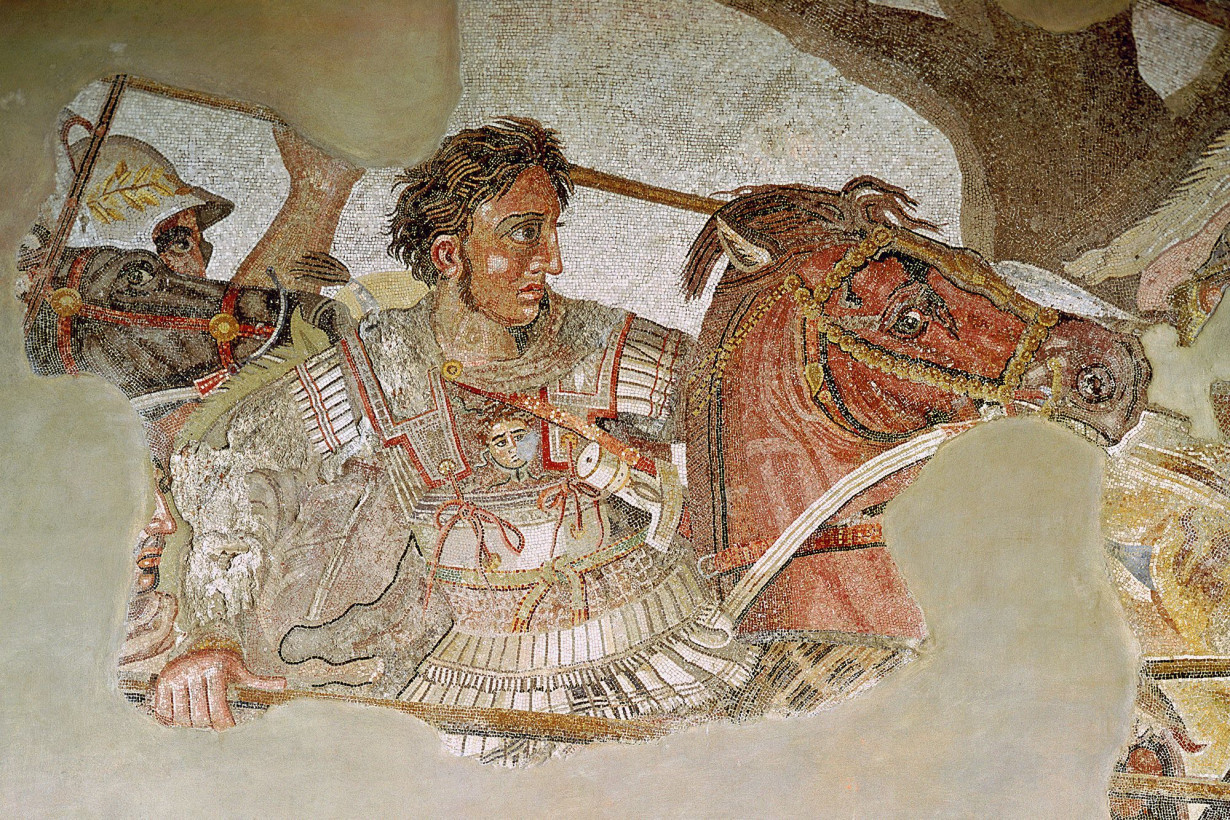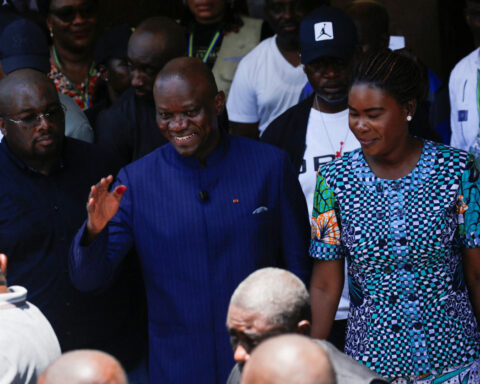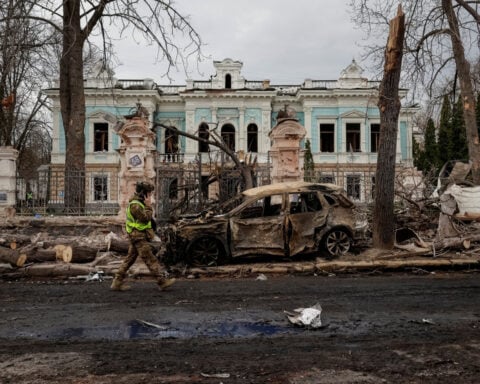(CNN) — By the time he died, aged just 32, he had redrawn the map of the northern hemisphere, conquering land across three continents and ruling over states from Egypt to modern-day India — over 2,000 years ago.
Since his death in 323 BCE, the world has been obsessed with Alexander the Great, who set out from his kingdom of Macedon (in modern-day Greece) at the age of 20 to conquer the mighty Persian Empire. He made it as far as the Indus River in modern-day Pakistan, and even crossed into today’s India, before dying in Babylon in today’s Iraq.
Over 2,000 years later, travelers can still see his legacy in countries as far afield as Egypt, Turkey and Pakistan — as well as Greece, of course, where, in 2024, archaeologists opened the Royal Palace of Aigai to visitors. The palace was the ceremonial hub for the Macedonian dynasty, and Alexander was crowned here following the assassination of his father, Philip II. There are dozens more sites around the globe where visitors can get close to the man — and the myth.
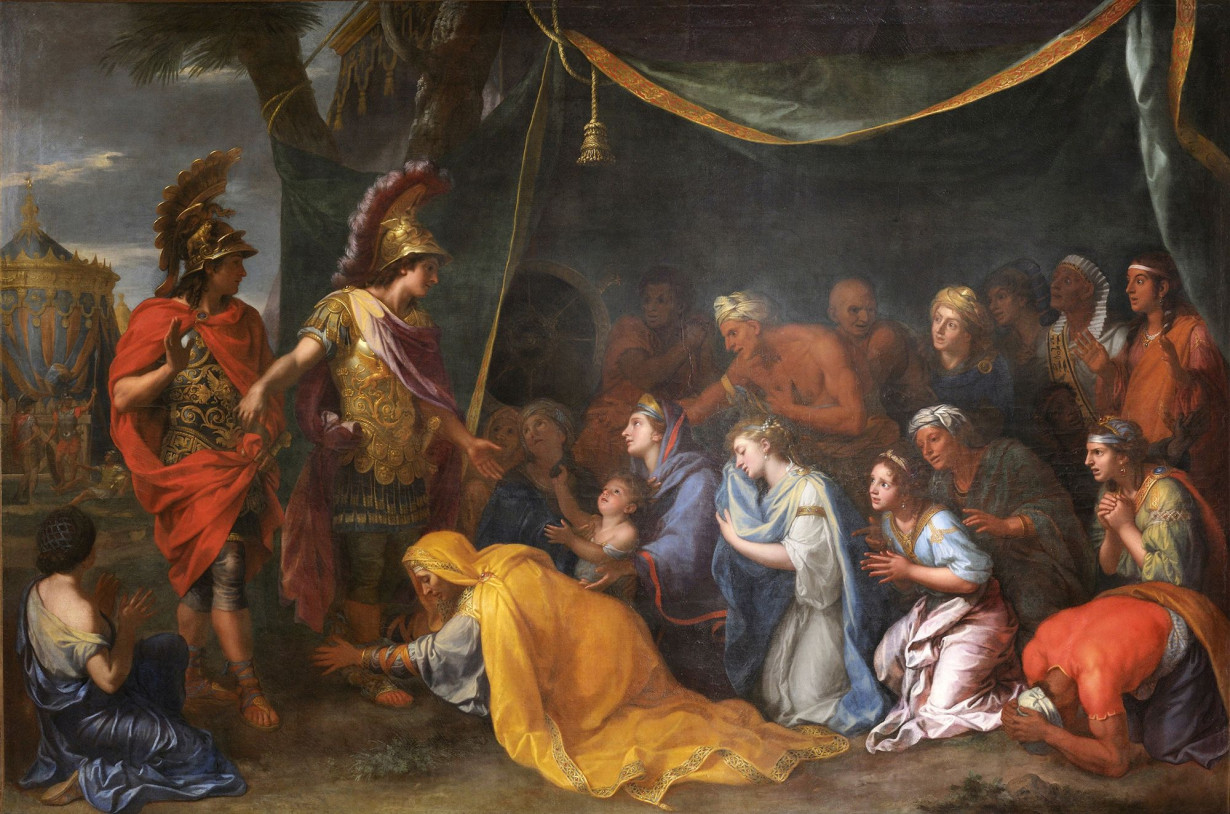
A mysterious death
What Alexander achieved in his 32 years is “unique,” says Paul Cartledge, AG Leventis professor emeritus of Greek culture at the University of Cambridge, who adds that the Macedonian “redrew the map of the world” by force, where his father had always tried diplomacy first.
Crowned king of Macedon in 336 BCE at the age of 20, Alexander spent just two years in Europe after Philip’s assassination, shoring up his rule and putting down revolts in southern Greece and the Balkans.
Then, in 334 BCE, he led his army into Asia to fulfil Philip’s ambition of conquering the Persian Empire — the largest in the world at that time.
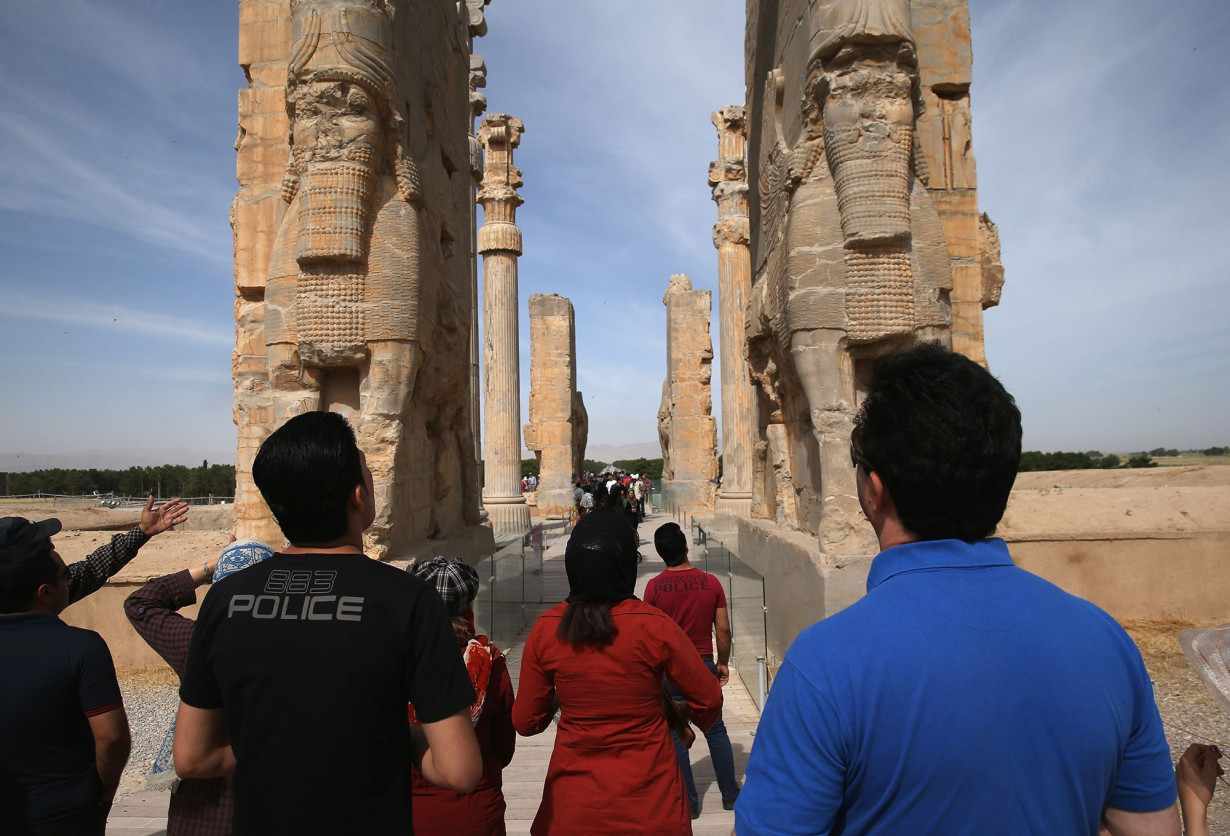
Over a 10-year period, fighting across modern-day Turkey, the Middle East, and as far away as Afghanistan and Pakistan, Alexander routed Persian king Darius III, taking the empire for his own. His territory now extended from the Adriatic Sea to the Indus River — and he was only 30.
From there, he pressed on into the Indian subcontinent and into modern-day Pakistan’s Punjab province, where he made further conquests, pushing into modern-day India, before his weary army rebelled. They turned back but on the way home, Alexander was struck by a two-week fever and died in Babylon.
His body was taken to Egypt and was said to have been entombed in Alexandria, where it was venerated by everyone from Cleopatra to Julius Caesar, before disappearing in around the fifth century. It has never been found.
Alexander died without having ever lost a battle, and while his empire soon splintered, for centuries, the official language of administration in the area remained Greek. “That’s why Greek spread all over the Middle East, and why the New Testament is written in Greek,” says Cartledge.
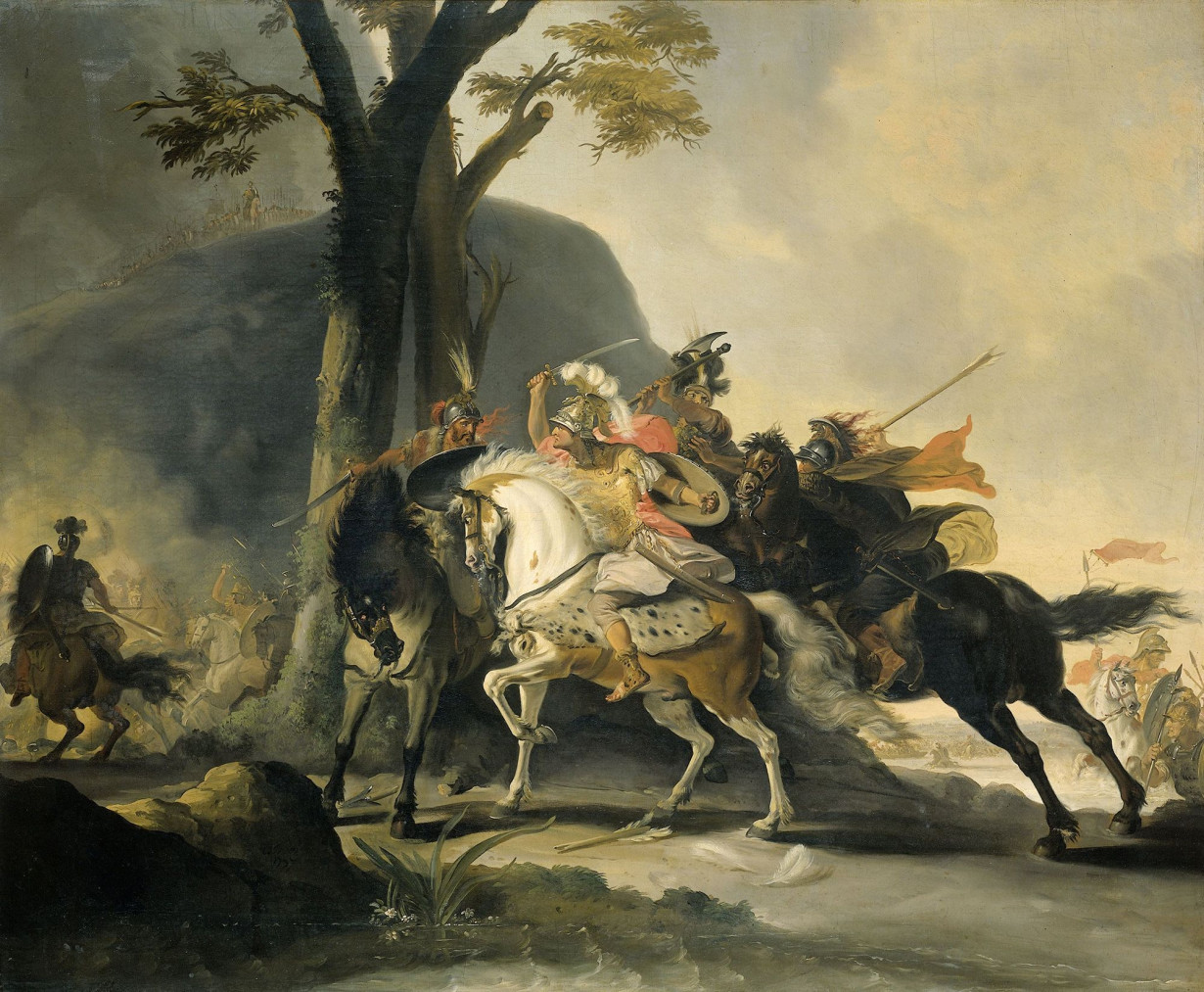
While he was hated by many Athenians, who believed in democracy not monarchies or empires — and while, Cartledge says, some followers of Zoroastrianism, an ancient monotheistic religion, still think of him as evil for destroying their ancient records in Persepolis, modern-day Iran — since his death Alexander has achieved an almost god-like status.
For Cartledge, Alexander was unique. “It takes an exceptional personality to preside over what he did,” he says, citing Genghis Khan as one of the few leaders of his caliber.
‘He overcame everything’
Alexander’s legacy is no stuffy history lesson. In fact, the story of the young man from Macedonia who pushed to the boundaries of the world has had fans from the word go.
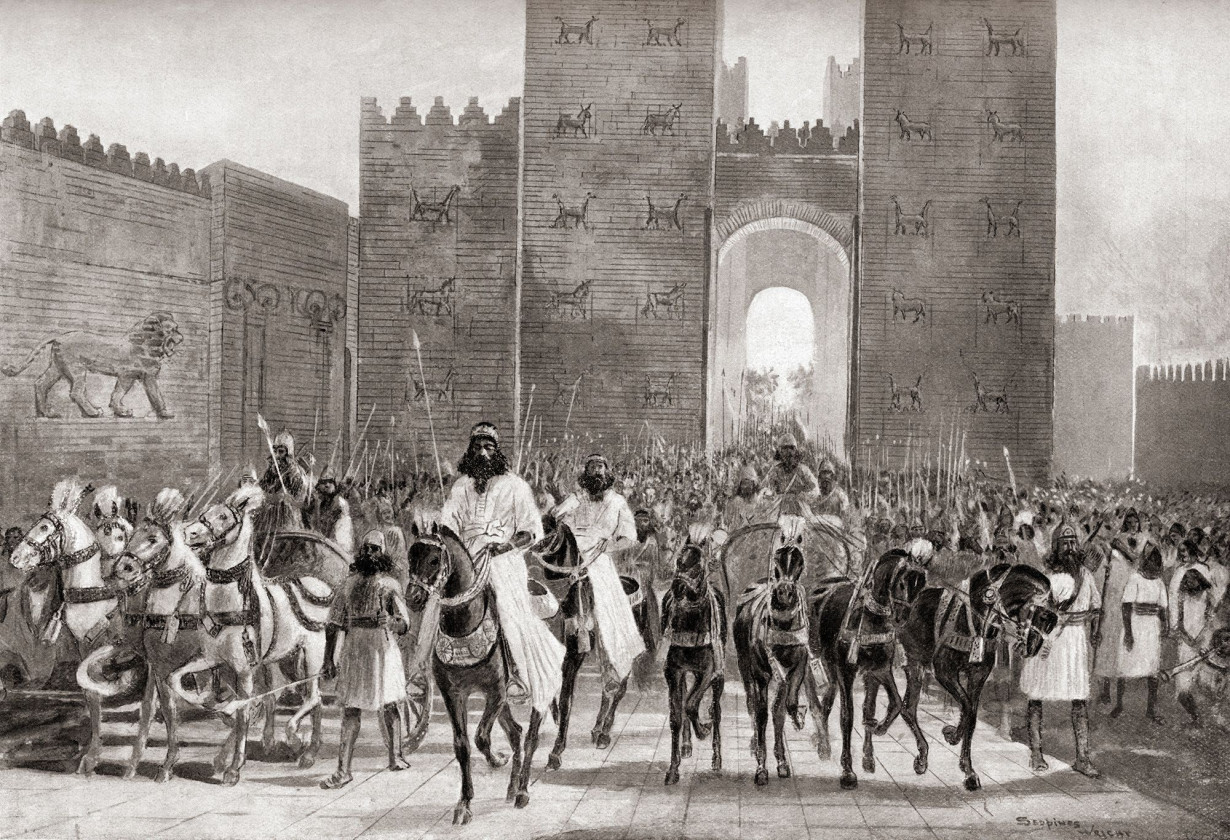
In the Roman period, writers including Arrian and Plutarch composed biographies of Alexander. Next, the “Alexander Romance” — first written in third-century Alexandria in Egypt — became hugely popular. Essentially a novel based on his life, it was translated into languages including Arabic and Persian — “every language in the world,” according to Pierre Briant, professor emeritus at the Collège de France, “The Achaemenid empire and Alexander’s empire” chair.
In 1010 CE, Persian poet Firdawsi wrote “Shahnamah,” the “Book of Kings,” which portrayed Alexander as Sikander, a Persian, and half-brother to Dara, or Darius. In this, Alexander preserves Persia’s Zoroastrian religion. Briant says the book went “everywhere in the Middle and Far East” — even to Indonesia.
Today, cities from Alexandria in Egypt to Kandahar in Afghanistan are named for Alexander.
“I think it’s a combination of his age — he did so much before he died — and the extraordinary distance that he traveled,” says Cartledge.
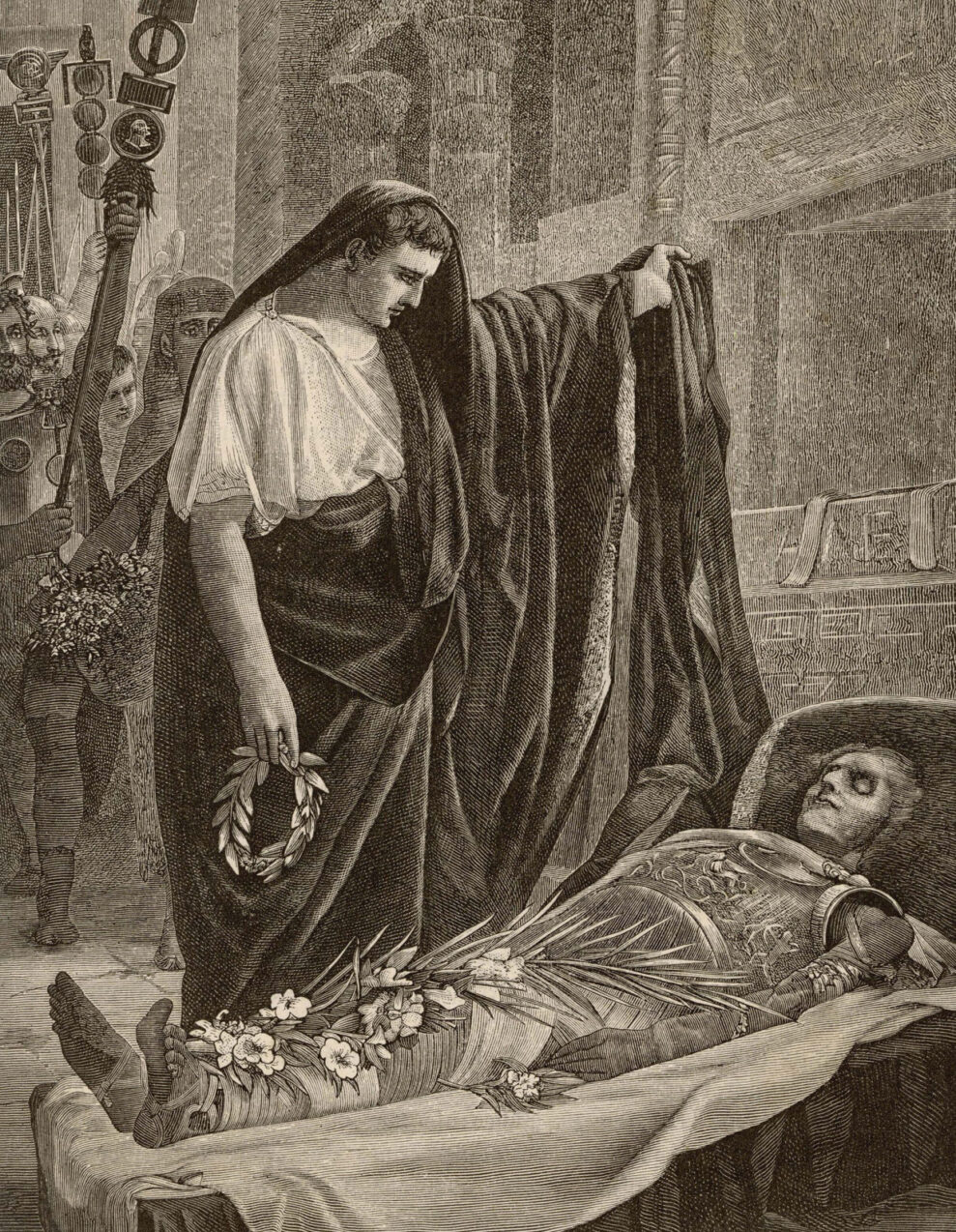
“He got as far as modern-day Afghanistan, Pakistan, a bit of India. He didn’t always go through very nicely, but he triumphed over ever possible obstacle: a mountain, a river, war elephants, scythed chariots. Everything that was thrown at him, he overcame.”
Even today, people are catching the Alexander bug.
“When I was a teenager I hated history,” says Peter Sommer, a UK tour operator who owes his career to Alexander. At school, Sommer planned to specialize in sciences, but one day his history teacher showed pupils a map of Alexander’s travels.
“My jaw fell open, hit the desk, and I went home and said, ‘I want to study ancient history,’” he says.
He changed his courses and went on to study ancient history and archaeology at university, writing his undergraduate thesis and masters dissertation on Alexander-related topics. He also embarked on a four-and-a-half-month, 2,000-mile hike through modern-day Turkey, recreating Alexander’s progress from the ancient city of Troy to the location of the Battle of Issus in modern-day Anatolia, where he first beat Darius.
“I thought, ‘How can I understand Alexander if I haven’t been to the places?’” he says. “I’d never traveled before, but I fell in love with travel and with Turkey.”
Having completed a similar project for the BBC, he launched his own tour company, Peter Sommer Travels, taking small groups on cultural, archaeological and food itineraries.
Sommer has run Alexander-themed tours across Turkey and Greece, and says his clients on those tours are “totally mixed.” While you might imagine that tours following in the steps of a great warrior might be male-focused, Sommer says that “we have lots of female travelers who are completely nuts about Alexander.”
Perhaps that’s because of his rather 21st-century approach to women. Unlike ancient conquerors who took rape and pillage as their right in victory, Alexander tended to stick to the latter and eschew the former.
In one memorable story, having defeated Darius (who fled) at the Battle of Issus, Alexander captured the Persian royals, including Darius’ wife and mother. Instead of enslaving them, as might have been expected, he treated them with dignity. Sisygambis, Darius’ mother, came to love Alexander as a second son, and even died of grief after his death, the story goes. What ancient figure could be more suited to a 21st-century audience than this unlikely respectful king?
Sommer says his clients on the Alexander tours are “total Alexander enthusiasts… they wanted to talk about him at every lunch, every dinner.”
He puts it down to Alexander’s “charisma” that still shines through the centuries.
“What fascinated me is how someone could do all this by the age of 32,” he says. “To have had the biggest military campaign ever. To lead from the front, up to 100,000 troops. His charisma must have been extraordinary.”
For his clients, traveling in the footsteps of Alexander can be emotional. One, who writes the Mega Alexandros blog but prefers to stay anonymous for privacy reasons, recalls an “unforgettable” drive through Iran’s Zagros mountains when a sandstorm swept up from Mesapotamia, Iraq.
“The bus stopped and sand was in my face, pulling at my clothes,” they say. “I thought, Alexander must have had such days. They had to march through that.’” In Uzbekistan, on an eight-hour bus ride from Tashkent to Bukhara, they thought, “My god, how did they do it? I couldn’t move at the pace his soldiers walked. When you’re on the spot and see the landscape, it’s totally different. You learn to look at the landscape because they had to. For me there’s nothing that can replace that.”
Projecting our fantasies
Alexander has joined an elite group of usually mythical figures whose characters shapeshift along with society’s beliefs and desires.
“The histories keep changing,” says Sommer. “He gets written up completely differently according to the time. He’s like a renaissance man that people interpret for themselves.”
Cartledge says “We project our dreams, fantasies and nightmares on people we call great. They’re by no means always good, but they achieve something way beyond what you or I possibly could.”
But Cartledge also says Alexander was a great propagandist. Two thousand years on, we still largely believe ‘his’ side of the story. He even linked himself to Homer’s mythical hero Achilles, adding romantic and homoerotic sides to his legacy.
Although he thinks Alexander’s episodes of slaughter — especially towards the end of his campaign — are a “a real stain on his memory,” Cartledge says “I admire him intensely. He was very brave, charismatic, had very great qualities, but also did some absolutely awful things. He was unique.”
A racist legacy?
One person who interprets Alexander a little differently from most is Briant. An expert on both the Macedonian and the Achaemenid (Persian) empires, and author of A short introduction: Alexander the Great, Briant bristles at the idea that Alexander achieved something that had never been done before.
The clue, he says, is in what Alexander did: conquer the Persian Empire.
“You can’t speak of Alexander alone as if he were a kind of supernatural person and without any context,” he says. “If you speak of conquests, you have to speak about the Achaemenid Empire. The Persian king had conquered Persia 200 years earlier, so when Alexander came to conquer the Middle East he had to conquer an organized empire. He was not the first.”
In fact, says Briant, there’s a simple reason why, 2,000 years on, we talk about Alexander but not Cyrus the Great, who founded the Achaemenid Empire in 550 BCE: racism.
“We are Europe-focused,” he says of historians. “Alexander has taken an enormous place in European thought from antiquity to the modern era. He was considered the first conqueror of the east… a precedent for European conquerors. Some 18th and 19th-century historians explained his victories as announcing the future victories of European armies against the Ottomans. It has become a kind of European political myth, and very important for European thoughts about Asia and the Middle East.” One of his books looks at the concept of Alexander as the “First European.”
Greek and Roman authors weren’t interested in the Persian Empire, he says — meaning that even from antiquity, it was effectively erased from history.
“When I speak with colleagues, especially from the US, working on Alexander, I ask, ‘Why are you not interested in the history of the Persian Empire?’ Some respond, “It’s too difficult, it’s another world.’ In fact it’s the same world,” he says.
He calls Oliver Stone’s 2004 film, “Alexander,” starring Colin Farrell, “completely foolish” for its lack of Persian context.
Briant even rubbishes the idea of the Hellenization of the east that took place after Alexander — when Greek became the official language. “This didn’t mean the local culture disappeared — quite the contrary,” he says, adding that everyone from the Egyptians to the Babylonians used their own language, too. Instead, he calls it a “meeting of cultures:” something that Alexander — who appalled his troops by dressing in Persian robes, married a woman from what is now known as Afghanistan (Roxana), and buffered his army with Persian soldiers — would surely have approved of.
While today we see Alexander’s behavior as multiculturalism, in reality it was political, says Briant. “Alexander was fighting for 13 years —– his main concern was maintaining an army,” he says. “By the end the army was mainly Iranian, and maybe he was concerned about culture, but the main point was to maintain military forces.” The same goes for his marriage to Roxana, which Briant calls “political,” About Alexander’s legendary treatment of Sisygambis, Cartledge agrees Alexander “wanted [the Persian royals] to buy into the new order.”
Although Briant acknowledges Alexander’s brilliance on the battlefield, his courage and intelligence, he emphasizes that the Macedonian wasn’t conquering brand-new territory, mile by mile, but a pre-existing empire.
“He conquered the Persian empire and its frontiers — it was his main goal,” says Briant. “That’s why it’s important to know about the Persian Empire. You can’t understand Alexander if you don’t understand Darius, the last king of the Persian Empire.”
Not for nothing is one of his books “Darius in the shadow of Alexander.”
Rather than Alexander or even Darius III, Briant says the man we should be venerating is Darius I, “the main conqueror and organizer of the empire.” Thousands of clay tablets found in Persepolis, in modern-day Iran, are finally being translated — and they show his importance, he says.
Cartledge — author of “Alexander the Great” — agrees that Darius I was a formidable ruler, who tolerated other religions. “But I’d say as a Greek historian that the impact of Alexander taking over what Darius had created made [the empire] even more amazing,” he says. “He transmitted a Greco-Persian culture. Darius was an amazing figure but I’d say Alexander’s achievement was even greater.”
Following in Alexander’s footsteps
Visitors to modern-day Iran can see remains of the empire at Persepolis, Susa and Pasargadae, the first capital of the Achaemenid Empire.
While in northern Greece you’ll find Pella, the ruined city where Alexander was born, as well as the tomb of Philip and other Macedonian royals in a spectacular underground museum at Vergina (ancient Aigai), and the newly opened royal palace above.
A little further south, at the foot of Mount Olympus (the most sacred site in Ancient Greece) is Dion, where Alexander made sacrifices to the god Zeus before setting out for Persia. And east of Aigai, past Thessaloniki (which was named for Alexander’s half-sister) is Philippi, renamed by Philip after he conquered it. There, an inscription in the museum bears a missive from Alexander ruling on a boundary dispute.
In Turkey, Sommer recommends the Istanbul Archaeology Museums, where there are two statues of Alexander as well as the Alexander Sarcophagus, a fourth-century BCE sarcophagus found in Lebanon, intricately carved with scenes from the life of the king.
Myths and as yet unproven theories also link him to other sites across the northern hemisphere. The ancient Thracian city of Perperikon, perched on a hilltop, in Bulgaria is said to be the legendary Oracle of Dionysus, where Alexander is said to have been told he would conquer the world, before setting out for Persia.
And some even believe that his bones were stolen from Alexandria by Venetians, who mistook them for the relics of St. Mark, which they ransacked from the Egyptian city and took home. Could they be the remains guarded closely in St. Mark’s Basilica in Venice?
End of the rainbow
Nobody knows what Alexander was planning when he died, though it’s thought he was eying the Persian Gulf and more of northern Africa.
But his legend has lived on. And despite his flaws, perhaps we could all be a little bit more Alexander.
“He didn’t spare himself. He didn’t play the long game. He tried to achieve as much as he could in the shortest possible time, possibly realizing he was going to die early,” says Cartledge.
For his fans, he is an inspiration across the centuries. “Alexander was a driven person,” says the Mega Alexandros blogger. “He went off to his end of the rainbow — and he never doubted he would reach it.”
The-CNN-Wire
™ & © 2025 Cable News Network, Inc., a Warner Bros. Discovery Company. All rights reserved.

 Trump has begun another trade war. Here's a timeline of how we got here
Trump has begun another trade war. Here's a timeline of how we got here
 Canada's leader laments lost friendship with US in town that sheltered stranded Americans after 9/11
Canada's leader laments lost friendship with US in town that sheltered stranded Americans after 9/11
 Chinese EV giant BYD's fourth-quarter profit leaps 73%
Chinese EV giant BYD's fourth-quarter profit leaps 73%
 You're an American in another land? Prepare to talk about the why and how of Trump 2.0
You're an American in another land? Prepare to talk about the why and how of Trump 2.0
 Chalk talk: Star power, top teams and No. 5 seeds headline the women's March Madness Sweet 16
Chalk talk: Star power, top teams and No. 5 seeds headline the women's March Madness Sweet 16
 Purdue returns to Sweet 16 with 76-62 win over McNeese in March Madness
Purdue returns to Sweet 16 with 76-62 win over McNeese in March Madness
